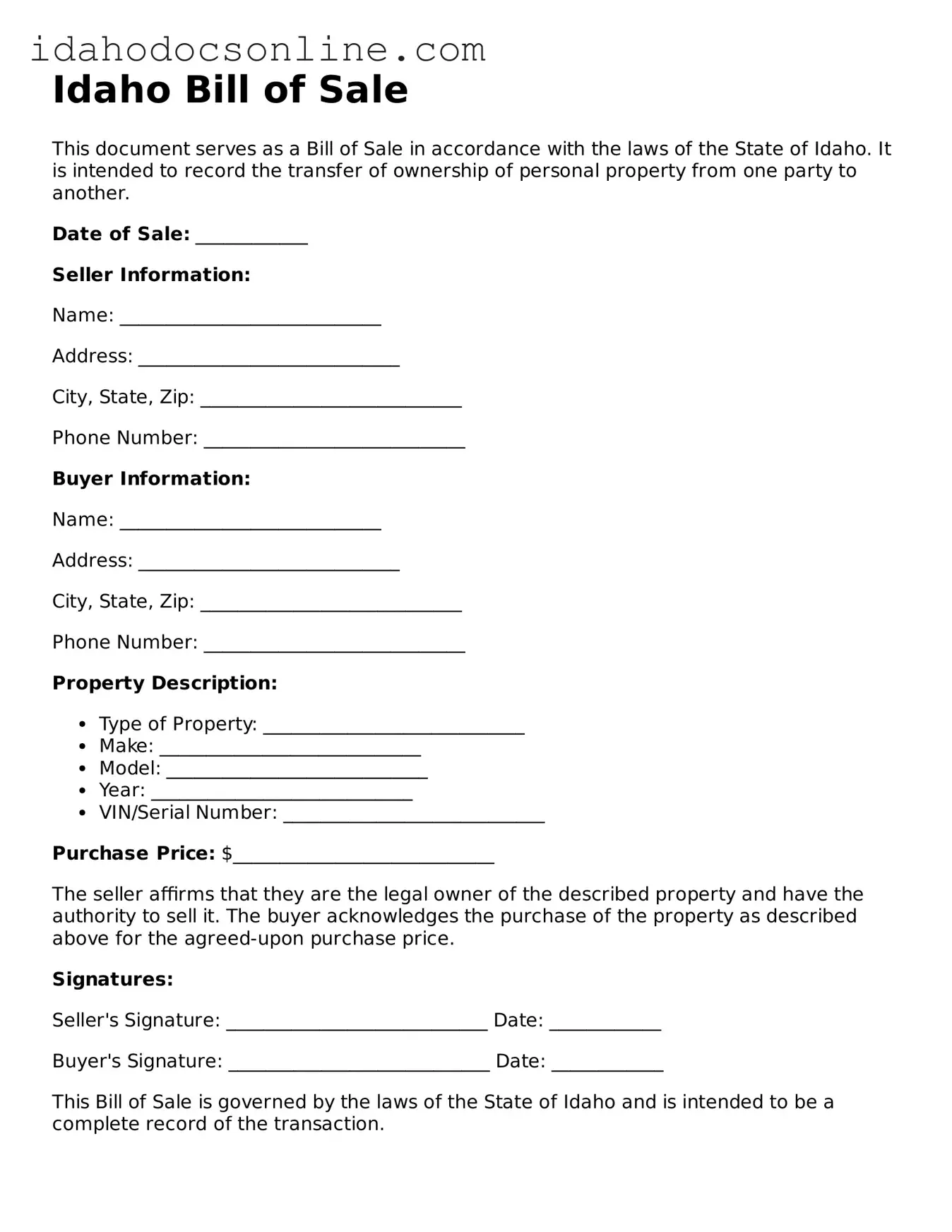Free Bill of Sale Form for Idaho
The Idaho Bill of Sale form is a legal document that records the transfer of ownership of personal property from one individual to another. This form serves as proof of the transaction and can be essential for both the buyer and seller. To ensure a smooth transfer, consider filling out the form by clicking the button below.
Fill Out Your Document

Free Bill of Sale Form for Idaho
Fill Out Your Document
Need speed? Complete the form now
Complete Bill of Sale online — edit, save, download with ease.
Fill Out Your Document
or
Free PDF
